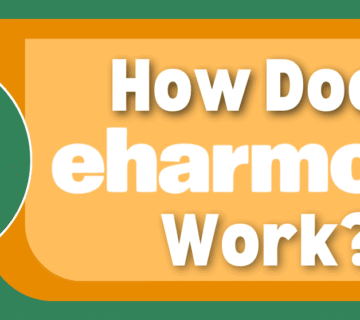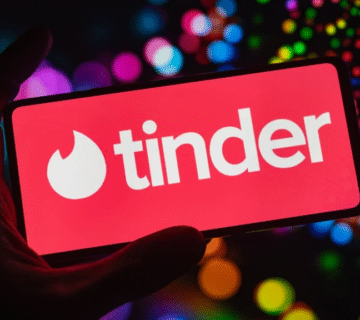In 2025, the promise of dating apps is bigger—and often more confusing—than ever before. Most platforms promote “match success” as a simple numbers game: the more swipes, the more connections, the happier you’ll be. But a chorus of real users, relationship scientists, and privacy experts now say that real match success looks decidedly different. To truly win at dating apps like Bumble, Hinge, and beyond, you need more than just clever lines and a packed inbox—you need self-awareness, healthy boundaries, patience, and a fresh definition of what success actually means.
The Evolution of “Match Success” in Online Dating
The Old Metric: Quantity > Quality
From the first emergence of dating websites and apps, “success” was sold as a matter of matches made, not matches kept. Metrics like daily swipe counts, inbox numbers, and “match streaks” became badges of honor (or anxiety) for users.
The 2025 Shift: Authenticity, Safety, and Emotional Fit
Leading voices in behavioral science and dating culture now agree:
-
“Success” is about meaningful connections, not sheer numbers.
-
Emotional intelligence, healthy boundaries, and profile truthfulness matter more than hacky “pickup” tricks.
-
Privacy-first features—like the lack of read receipts on Bumble—make space for authentic relationships to unfold at a natural pace.
The Modern Match: 2025’s Winning Formula
A successful match is one that supports both parties’ growth, respect, and joy—on or off the app.
To achieve this, users must blend digital literacy with timeless social wisdom. Here’s how:
1. Profile Truthfulness Over Marketing Tricks
-
Use recent, realistic photos (ideally, diverse: solo, candid, full-body, with hobbies).
-
Answer prompts honestly and specifically (“Love hiking in the rain” > “I like adventures”).
-
Link interests to real-life values (causes, family, travel, sense of humor).
2. Quality First Messages
A personalized first message referencing a profile detail receives up to 5x more replies than “Hey” or “Hi.”
Examples:
-
“You mentioned climbing—what’s your dream peak?”
-
“Pani puri or dosa on a rainy day?”
-
“What’s the best book you read this year (and should I add it to my list)?”
3. Patience and Boundaries: The Keys to Emotional Safety
-
Respect slow replies: Most users cite busy lives and emotional fatigue as reasons for gaps.
-
Never spam or “double-message” after silence; send a gentle nudge after 24–48 hours at most.
-
Move from app to real life (or video chat) mindfully: Wait until genuine trust builds.
4. Privacy as a Tool for Authenticity
Platforms like Bumble champion:
-
No read receipts or “seen” status chasing
-
Gross profile or message stats hidden from view
-
Block, unmatch, and reporting tools for instant safety
This supports a less pressured, healthier experience for all.
Case Studies: Real Match Success Stories
Story 1: Less is More
After deleting most of her “match and dash” conversations, Riya, 29, focused on just 2–3 quality chats per week. By being more selective and patient, she landed a steady relationship within months.
Story 2: Boundaries Breed Respect
Vikram, 32, used to respond instantly to every message for fear of missing out. Only once he set a rule—no answering after 10 pm—did he notice he attracted matches who actually respected his time, leading to calmer, more respectful conversations.
Story 3: Safe Communication Pays Off
Priya, 27, found relief in Bumble’s lack of read receipts after years of hurtful “left on read” moments on other apps. “Now, if someone is interested, I know it will come out naturally,” she says. This reduced her anxiety and made dating fun again.
What Science Says: Emotional Intelligence and Matchmaking
-
Studies show most romantic compatibility is determined by honest self-disclosure and emotional resilience, not just “matching” on hobbies or looks.
-
Privacy-first platforms (according to the Electronic Frontier Foundation) lower user burnout and social anxiety, helping matches develop organically.
-
A slow, mutual build-up (sometimes called “slow dating”) leads to longer, happier relationships than rapid-fire chatting or instant matches.
Top 10 Best Practices for Dating App Match Success in 2025
-
Profile Reality > Fiction: Be real, be specific, and show what makes you tick.
-
Personalize Every Opener: Use a detail or shared interest to show attention.
-
Honor Response Gaps: People are busy—respect time and emotional availability.
-
Communicate Boundaries: Share your comfort zones early (pace, topics, moving apps).
-
Move Slowly: Only suggest a call/meet-up if trust is established.
-
Avoid Spamming: One thoughtful follow-up if needed; then move on gracefully.
-
Leverage Privacy Features: Use mute, block, and report when necessary.
-
Beware Hype Statistics: Ignore “match streak” or inbox-size pressure; focus on quality.
-
Practice Detachment: Your value is not tied to every reply or swipe.
-
Celebrate Every Win: From good conversations to lessons learned—see every match as growth.
The Role of Privacy in Real Matchmaking (2025 Perspective)
Why privacy-first design matters:
The Electronic Frontier Foundation and top relationship researchers emphasize that healthy digital dating relies on the ability to respond, disconnect, and reflect without external or system pressure. Features like:
-
No read receipts (as on Bumble and Hinge)
-
No “last seen” or “online now” trackers
-
Strong reporting/blocking tools
…all protect users from the burnout, anxiety, and performative behavior that plagues less privacy-conscious apps.
Expert FAQ: Modern Matchmaking and Success
Q: Doesn’t slow messaging mean I’ll lose matches?
A: No—if someone is genuinely interested, patience only boosts rapport and respect.
Q: Should I pay for premium dating features?
A: Only if they serve your actual needs (boosting visibility, managing filters)—not for “match statistics” that pressure you without real value.
Q: Can privacy features really improve genuine connections?
A: Yes—less pressure leads to more authentic, invested conversations and reduces ghosting-related anxiety.
Q: Is a lower match count bad?
A: Not at all—the goal is a handful of quality connections that enrich your life, not hundreds of fleeting, meaningless chats.
Read More: Messaging Boundaries on Bumble: The New Golden Rule for Healthy Connections in 2025
Conclusion: Match Success Is More Than a Swipe Stat
Dating apps in 2025 exist in a paradox—giving us thousands of possible connections, but only a few that truly change us. The real match success is found not in your inbox count, but in your emotional intelligence, patience, honesty, and demands for privacy and respect. Apps like Bumble (with no read receipts, safety tools, and user-first design) are proven allies in this quest.
So, redefine your meaning of “success.” Seek quality, set boundaries, use privacy to your advantage, and let every match be a step toward self-knowledge and lasting joy.








[…] Read More: Rethinking “Match Success”: The Science and Strategies Behind Finding Real Connections on Dating… […]